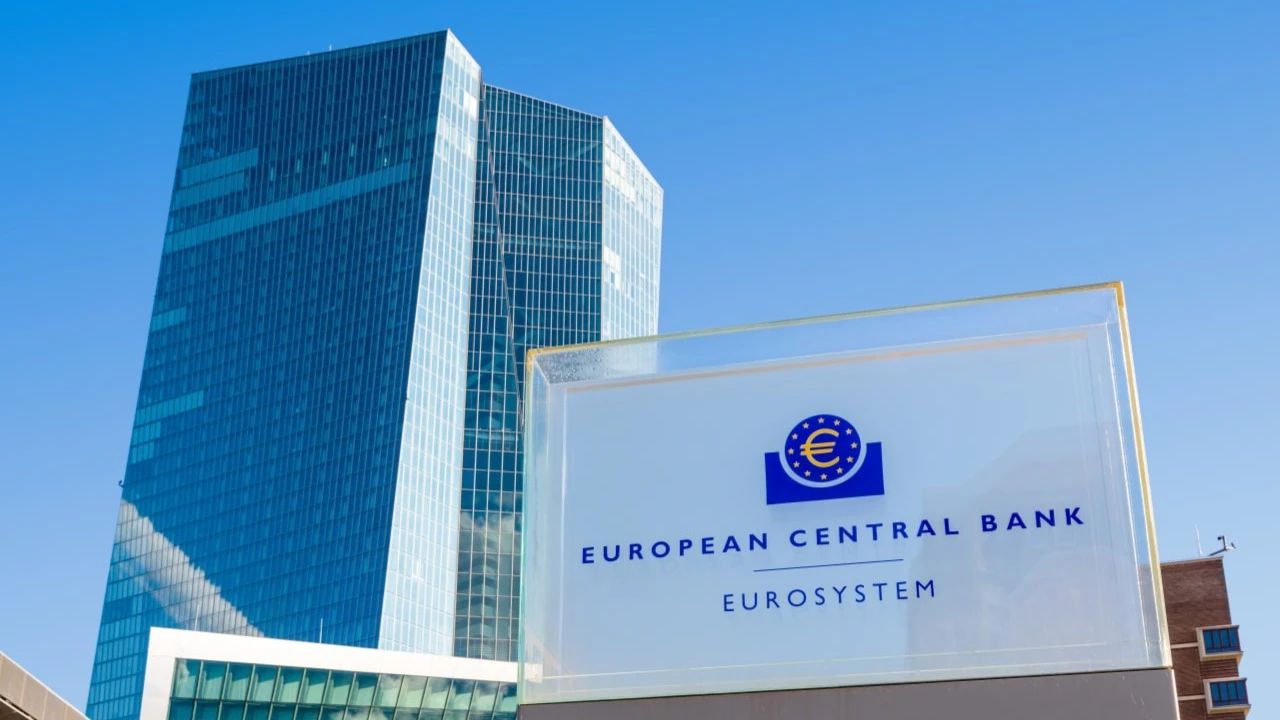The ECB cut rates for the seventh time in a row and lowered its inflation forecast. What the market is waiting for
A revision to expectations for inflation growth in 2026 to 1.6% is probably the biggest surprise, Bloomberg says

The European Central Bank reduced interest rates by 25 basis points - in full accordance with traders' expectations. The reduction was "almost guaranteed", CNBC wrote the day before. Nevertheless, the regulator managed to surprise the market: it significantly revised its inflation forecast for next year and worsened its estimate of GDP growth.
Details
The European Central Bank's Governing Council cut three key rates by 25 basis points following a two-day meeting on June 4-5, said in a statement on the regulator's website.
- The key deposit rate fell to 2%.
- The base interest rate has been reduced to 2.15%.
- The marginal lending rate will be 2.4%.
The new values will take effect from June 11 2025.
ECB Forecast
The regulator has also revised its inflation expectations: according to the updated forecast, this year it will be 2%, next year it will fall to 1.6% (while earlier the ECB said 1.9%), but by 2027 it will return to 2%. The lower estimate "reflects lower assumed energy prices and the strengthening of the euro," the ECB said in a press release;
Real GDP growth in 2025 should, as previously expected, amount to 0.9%. But the ECB worsened its forecast for economic expansion in 2026 to 1.1%. The estimate for 2027 remained unchanged at 1.3%. "Continued uncertainty in trade policy is expected to restrain business investment and exports, especially in the short term, but increased public spending on defense and infrastructure is increasingly expected to support growth in the medium term," the European Central Bank said.
The regulator also presented scenarios for the impact of trade policy on the region's economy and warned that further escalation of these tensions in the coming months would push growth and inflation below the baseline forecast. On the contrary, if the trade conflict with the US is resolved with a favorable outcome, the baseline scenario will be exceeded;
What's on the market
The market practically did not react to the ECB decision. The pan-European index Stoxx 600 maintained growth by 0.3%, German Dax slightly rose - up to 0.5% compared to the morning growth of 0.3%, French Cac 40 remained in the plus by 0.3%.
The euro strengthened 0.3% to $1.1448. Germany's 10-year bond yield fell 5 basis points to 2.476%, its one-month low. is a one-month low, Bloomberg pointed out.
What's next
That the ECB would cut rates at the end of its June meeting was "virtually guaranteed," CNBC wrote. More important is what actions the regulator may take next, given the high uncertainty facing the region's economy, the channel warned. Challenges include pressure from U.S. President Donald Trump's trade restrictions and possible retaliatory measures from the EU, as well as massive rearmament plans and an important budgetary pivot by Germany, which is set to ramp up government spending. New military and infrastructure investments could stoke both economic growth and inflation, Bloomberg notes.
In May, inflation in the eurozone came close to the ECB's 2% target for the first time since last fall: according to preliminary data published this week, consumer prices rose just 1.9%. Inflation in the services sector, which is closely monitored by the regulator, fell to 3.2% from 4%. At the same time, economic growth remains sluggish, with the latest estimate of eurozone GDP expanding by 0.3% in the first quarter of 2025.
May's price growth data raised the possibility that the next rate cut could come as early as July, according to Jack Allen-Reynolds, deputy chief eurozone economist at Capital Economics. Meanwhile Barclays has a more cautious stance: in a note last week, the bank suggested that rates should indeed fall, but unlikely so soon. It forecast two 25 basis point cuts in September and December - meaning the ECB will take a pause in the summer.
In a BofA report, the ECB now has "little reason to keep rates below 2%". Here's what the investment bank wrote after the release of May inflation data, ahead of the regulator's meeting: "We expect it to be recognized: the door for a rate cut below 2% remains open, but there are likely to be no clear signals. Uncertainty over duties will give the Governing Council enough reason not to make premature promises."
According to a survey of analysts conducted by Bloomberg, more than half -expect the deposit rate to fall to 1.75 percent in September, when talks with the U.S. to settle trade restrictions are due to conclude and estimates will have already taken into account the full impact of duties. However, analysts also warn that the ECB cannot afford too long a time-out.
